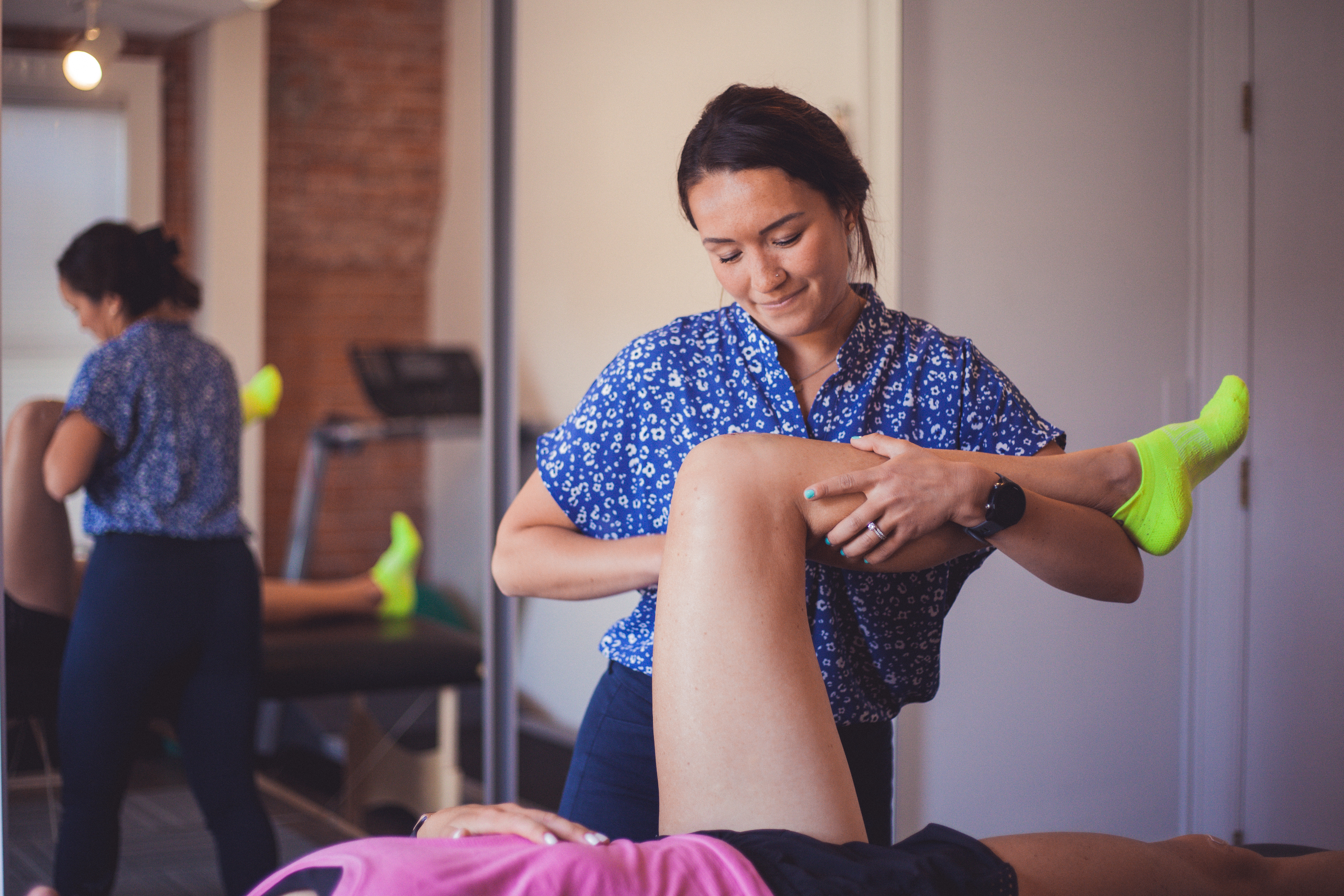


If you are an endurance athlete who has a few training cycles under your belt, you likely have experienced aches, pains, and/or injury that required a visit to a local physical therapist. This is common with endurance athletes, since pushing your body to its limits often creates or highlights imbalances and weaknesses that need to be addressed. The problem is: many sport physical therapists say that they work with athletes, but when it comes down to it they don’t provide the best athlete care.
Have you ever gone to a physical therapist only to come out more frustrated and confused than when you went in? Have you ever felt like it was a waste of time and money, since you didn’t get the results you were looking for? We have too. In fact - finding a physical therapist that can actually help athletes get better is the reason we started Training Block. We understand that without effective physical therapy, you eventually fall into one of two categories: (1) you train through discomfort or pain and believe nothing will help, or (2) you stop training altogether.
This video by InstaCare Physical Therapy highlights some reasons why sport physical therapy didn’t work for you in the past.
The good news is, there are amazing, game-changer physical therapists for athletes all across the country. Training Block’s mission is to give you better access to practitioners and coaches who work specifically with endurance athletes, and understand how your bodies work and how to help you heal.
If you are looking for a top sports physical therapist in your area, you can find one by searching Training Block. If no one is listed in your area, ask us to help by emailing support@trainingblockusa.com! We are experts in finding top physical therapists for athletes and can point you in the right direction.
And if you are looking for ways to find a physical therapist on your own, below are some factors to consider when looking for a physical therapist who works with athletes.
How Much Time Does The Physical Therapist Spend With You During Your Treatment?
A physical therapy evaluation should be a full body evaluation. It is our belief that a physical therapist cannot effectively evaluate your condition in 15-20 minutes, which is often the time allotted in traditional physical therapy clinics. Instead, it takes between 30 minutes to an hour to thoroughly evaluate a patient. Look for these signs that your physical therapist is providing you with a thorough evaluation catered to your sport:
What Does Their Clinic Look Like?
You can learn a lot about a physical therapist right when you walk into their clinic. Here’s a short answer: if you don’t see weights, HEAVY weights, in their clinic, run away! Physical therapists who treat athletes should be utilizing weight training as an integral part of their treatment plans. Many sport physical therapists unfortunately do not, but those physical therapists often provide ineffective results.
Are They Helping You Change Problematic Movement Patterns?
A sport physical therapist should be helping you change any problematic movement patterns, after they have assessed you to see what is going on. There are quite a few good ways to do this, so look for a physical therapist that incorporates one or multiple of the below approaches with you:
Does The Sport Physical Therapist Show Any Of The Below Warning Signs?
If you are working with a physical therapist that says they are qualified to work with athletes, the below are some red flags to consider if you see your physical therapist using them when working with you.
How Long Does The Sport Physical Therapist Intend To See You?
The best sport physical therapists want to see you happy, healthy, and ultimately out the door as safely and quickly as possible. Unfortunately, many traditional physical therapy models aren’t designed to allow for this, and you end up going to the clinic twice a week for at least 6 weeks, without good results to show for it.
Make sure to work with a sport physical therapist who wants athletes to return to their sport and leave their office, NOT someone who tries to keep you coming back. You can get a lot of context clues by whether they give you thorough homework and exercises to do out of office, and how intentionally they are trying to progress you towards health.
Is the Sport Physical Therapist Cash Based?
Lastly, we say this with a large asterisk, but as Dr. Smith of Core Values PT Orlando makes clear, one good litmus test of a quality sport physical therapist is whether they take insurance or are cash pay only.
There are good sport physical therapists who take insurance, just as there are good sport physical therapists who are out of network. However, oftentimes insurance limits a PT on how much time they can spend with a patient, which directly correlates to your quality of care! We recommend working with a cash based sport physical therapist when possible, and seeing if you notice the difference.
Training Block’s mission is to give athletes better access to quality sport physical therapists, as well as other sport performance experts like dietitians, strength and run coaches, sport psychologists, chiropractors, acupuncturists and more. You can always find a quality sport physical therapist on Training Block, by searching “physical therapy” in a location near you.
If you have any questions or feedback on this article, hit us up at support@trainingblockusa.com. Happy training!